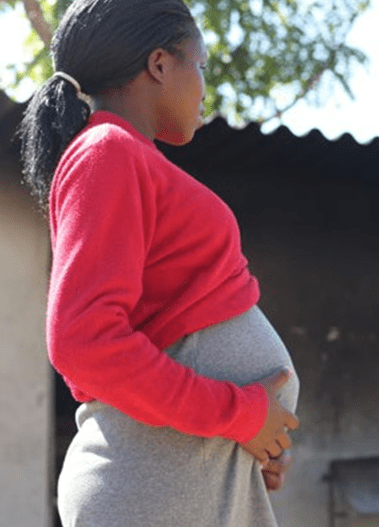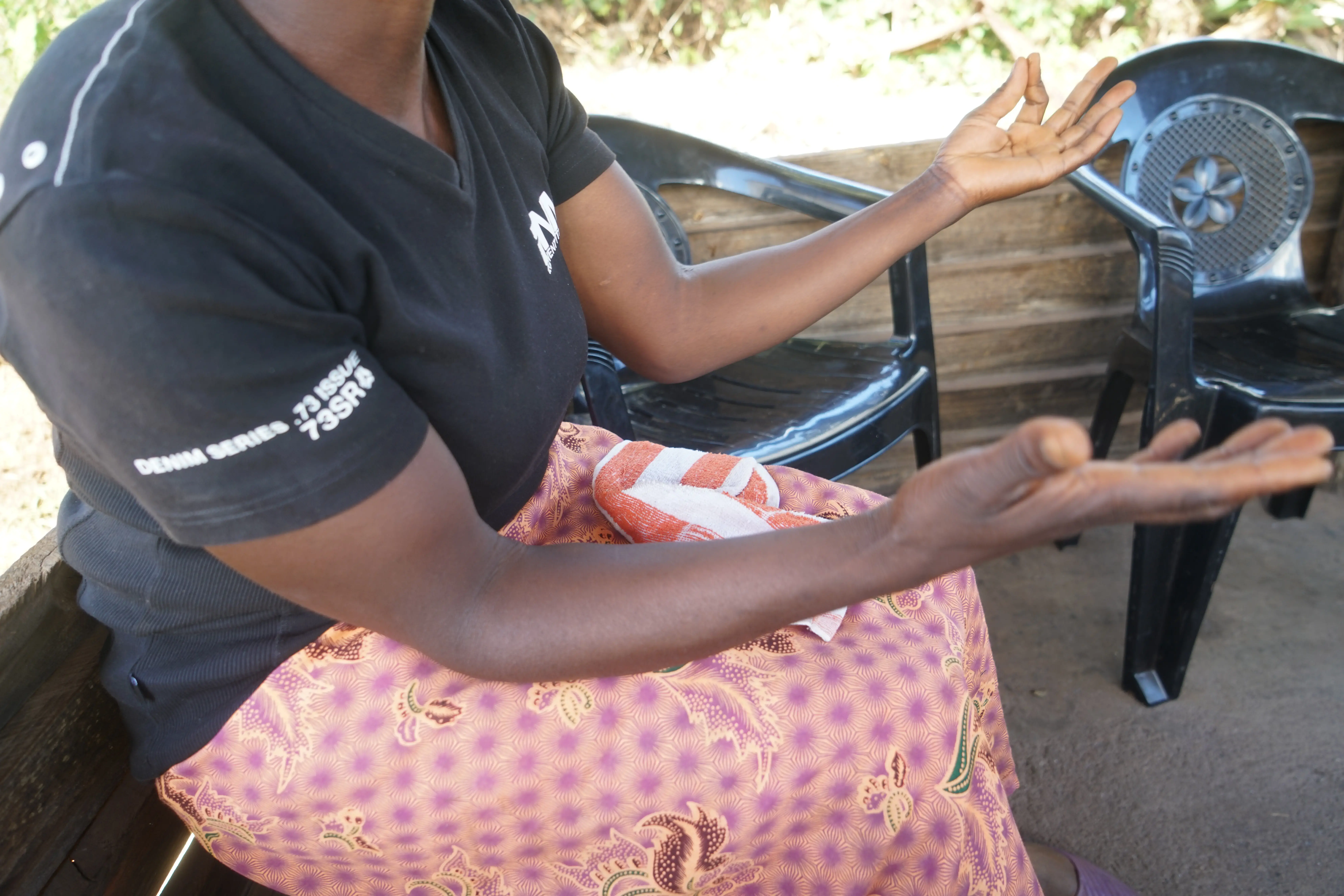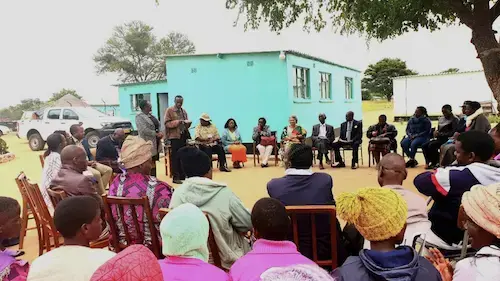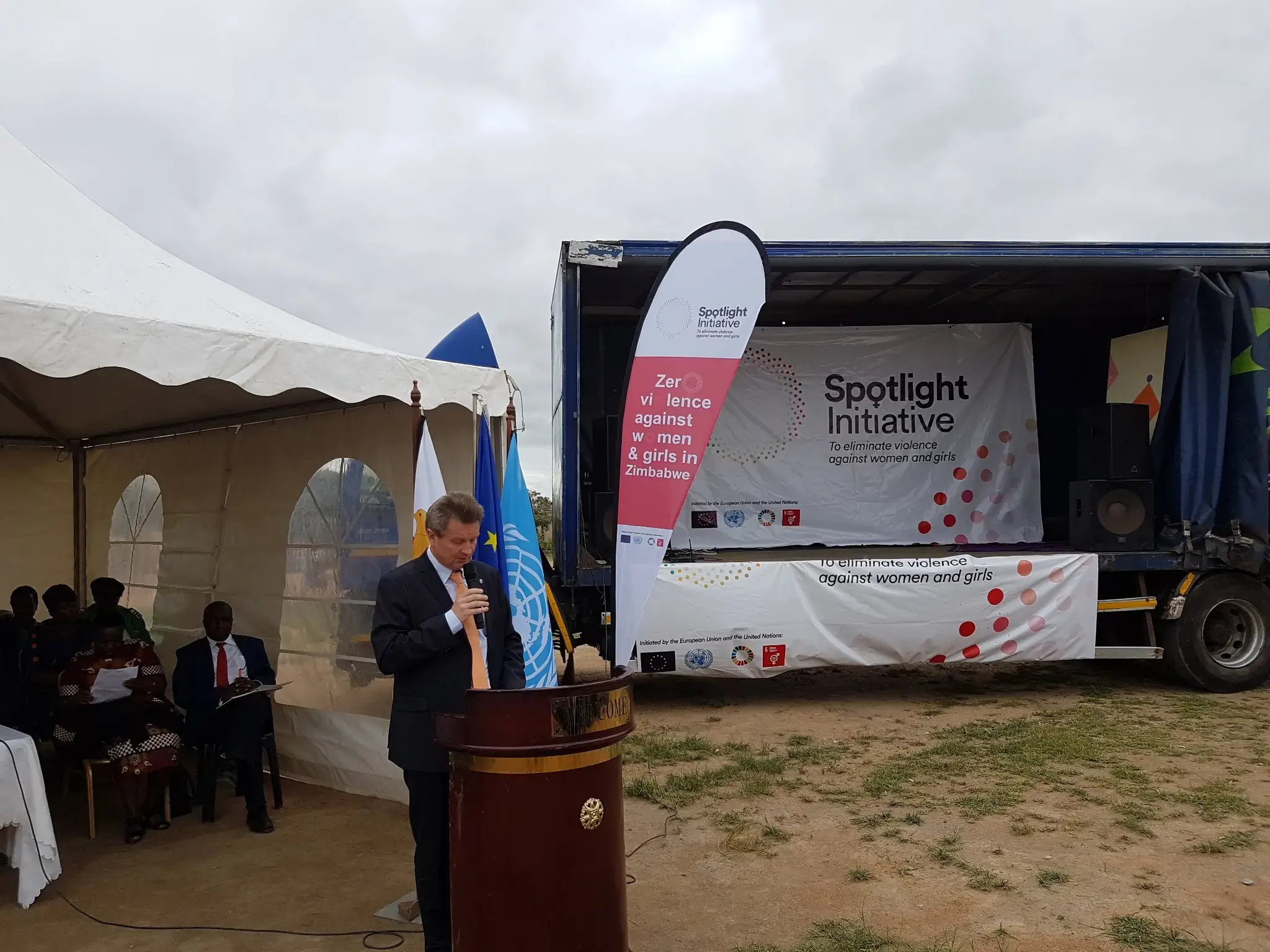“My name is *Millan Ndoro, and I’m 15 years old. I live in rural Chipinge and am a survivor of sexual abuse. I was raped by my 19-year-old neighbour and got pregnant as a result. My grandmother, who was my guardian, then chased me away from home, and I had no option but to find shelter with the parents of the boy who had raped me. My grandmother demanded dowry for me from the boy’s parents and it was paid. So I was officially in child marriage.
When the Social Welfare was alerted, I was immediately removed from the family. They contacted Musasa Project, who provided counselling and also referred me to the mobile medical team. Dr Musiya from the ZIRP team attended to me. He examined me and conducted STI screening and other tests to ascertain whether I needed further medical attention. The medical care I received was conducted for free.
I was taken to the shelter for safety as Musasa was pursuing the case. With Musasa’s intervention, the police began to cooperate and the trial has started. Family therapy and counselling were done with my family, who then agreed to take me in and ensure that I go back to school. Through Musasa’s support, I continue getting medical care from a mission hospital whenever it’s needed, and they treat me with so much care.
Musasa Project dedicated itself to follow up on my case in court, and the hospital will provide medical care until the baby is born. I appreciate the support I got from Musasa Project and the World Health Organisation (WHO) team. I hope they continue to support other girls as a means of protecting the girl child against sexual abuse and child marriages.”
Under ZIRP, the United Nations Population Fund (UNFPA), with financial support from the World Bank, supports Gender-Based Violence (GBV) survivors like Millan to receive life-saving services through mobile One Stop Centres. Services provided by Mobile OSCs teams include the Clinical Management of Rape (CMR), provided by Nurses and doctors from the mission hospitals in the two target districts of Chimanimani and Chipinge. The medical staff are engaged at the World Health Organisation led ZIRP mobile clinics. UNFPA has provided technical assistance by training 14 Mobile Clinic medical staff on CMR to ensure continuous provision of timely CMR for Survivors of rape.
Sharon Matingwina, Musasa Project Programmes Officer, says doctors and nurses from the mission hospitals engaged by the WHO are offering specialized SGBV services.
“Musasa has found this model, involving collaboration with a health sector partner to be very effective because survivors are now able to get a holistic package of specialized care, making the mobile One Stop Centres a practical one-stop-shop with a comprehensive package being offered,” Sharon says.
ZIRP project manager Dr Irene Isbor of WHO says it is important to have trained medical teams as part of GBV survivor support to prevent and manage possible health consequences associated with GBV. She says GBV survivors must have access to clinical care, including supportive counselling, as soon as an incident occurs.
“Training medical teams equip them with expertise in supportive communication, history and examination, forensic evidence collection, emergency contraception for the prevention of unwanted pregnancies, treatment of STIs, prevention of HIV transmission, care of wounds and prevention of tetanus, and facilitation of referral for other services, such as psychological and social support. Teams are trained to respect survivor confidentiality and minimize stigmatization,” Dr Isbor says.
Other services offered by the WHO team under ZIRP at the mobile outreach clinic include immunization, antenatal and postnatal care, family planning, growth monitoring and promoting Water, Sanitation and Hygiene (WASH). Clients are also screened for diabetes, hypertension and other non-communicable diseases.
GBV survivors who may require services outside the mobile clinic outreach are referred to static facilities. Dr Isbor says WHO medical teams do static consultations at health facilities at least once a week, offering treatment and support to survivors.
“Services offered at static sites include emergency contraception for the prevention of unwanted pregnancies, treatment of STIs, testing for HIV and syphilis, PEP to prevent HIV transmission to survivors. Survivors are also referred for further services like psychological and social services. Health education talks held at static sites also cover GBV issues.”
This article was first published in the Zimbabwe Idai Recovery Project Newsletter.





